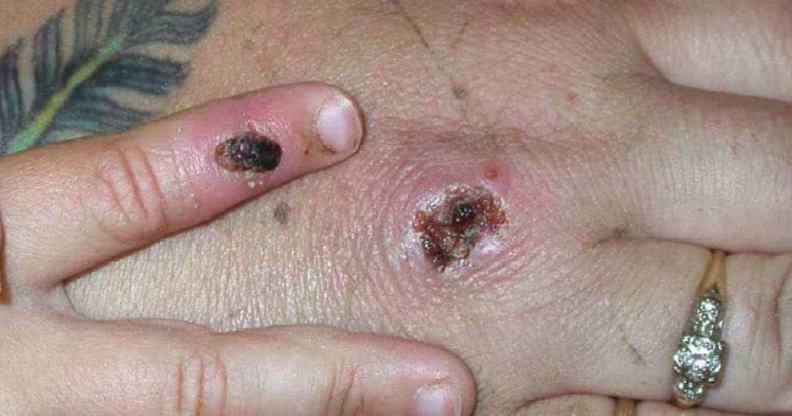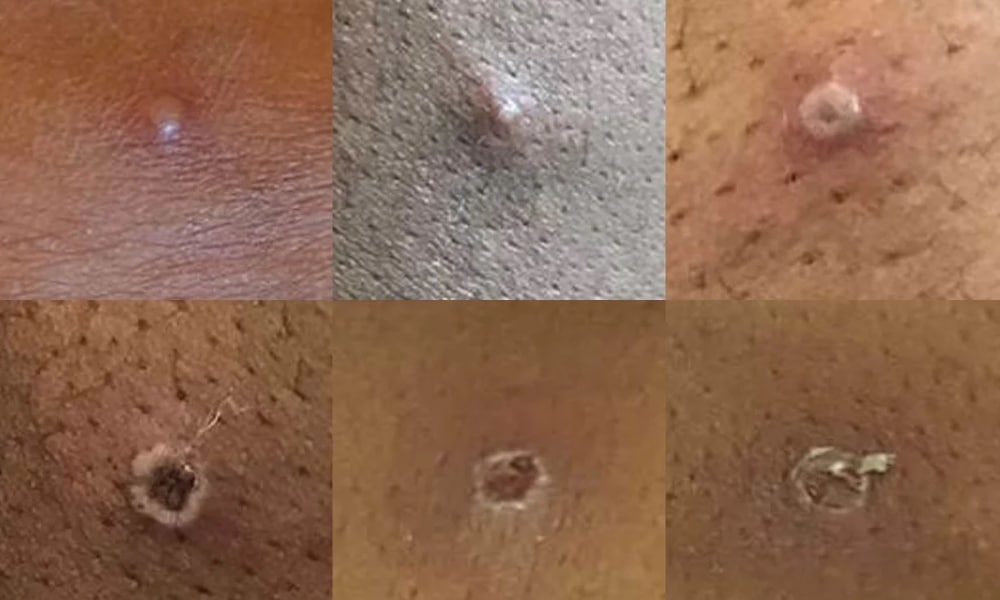Monkeypox: UN condemns ‘homophobic and racist’ reporting on spread of rare virus

Monkeypox lesions. (Getty/ CDC)
United Nations officials have condemned some reporting on the recent outbreak of rare virus monkeypox as “racist and homophobic”.
Since 6 May, there have been at least 20 cases of monkeypox detected in the UK, with the Health Security Agency (UKHSA) noting cases have predominantly been found in gay and bisexual men. UK health officials are due to announce even more monkeypox cases on Monday (23 May).
However the agency has also said that the “infection can be passed on through close contact or contact with clothing or linens used by a person who has monkeypox” and can affect anyone in any community.
The United Nations’ AIDS agency (UNAIDS) added that some reporting on monkeypox regarding African people and the LGBTQ+ community “reinforce homophobic and racist stereotypes and exacerbate stigma”.
Matthew Kavanagh, UNAIDS deputy executive director, told the Guardian: “Stigma and blame undermine trust and capacity to respond effectively during outbreaks like this one.”

The stages of monkeypox. (UK Health Security Agency)
The World Health Organisation (WHO) said that as of Saturday (21 May), it has confirmed about 92 cases and 28 suspected cases of monkeypox, with outbreaks reported in 12 countries where the disease is not typically found, including Spain, Portugal, the US and Canada.
The organisation said in a statement on Friday (20 May): “WHO is working with the affected countries and others to expand disease surveillance to find and support people who may be affected, and to provide guidance on how to manage the disease.”
Initial symptoms of monkeypox are flu-like, including fever, headache, muscle aches, backache, swollen lymph nodes, chills and exhaustion.
Although “the vast majority of monkeypox cases have been in the heterosexual community in Africa”, according to Dr Claire Dewsnap, president of the British Association for Sexual Health and HIV, UK cases were primarily spotted among gay and bisexual men.
“A large proportion of the cases detected overseas are among gay, bisexual or men who have sex with men,” said New South Wales, Australia chief health officer Kerry Chant.
“We are urging men who are gay, bisexual or men who have sex with men to be aware of any unusual rashes or lesions.
“Be particularly vigilant if you have returned from overseas from large parties or sex on premises venues overseas.”

